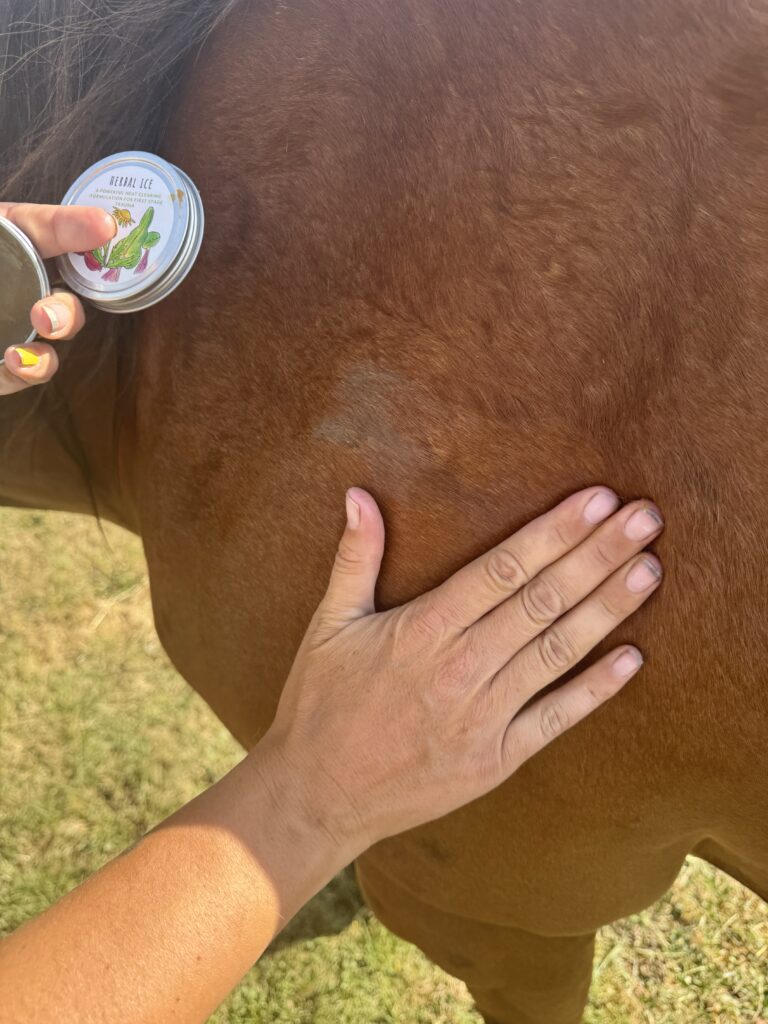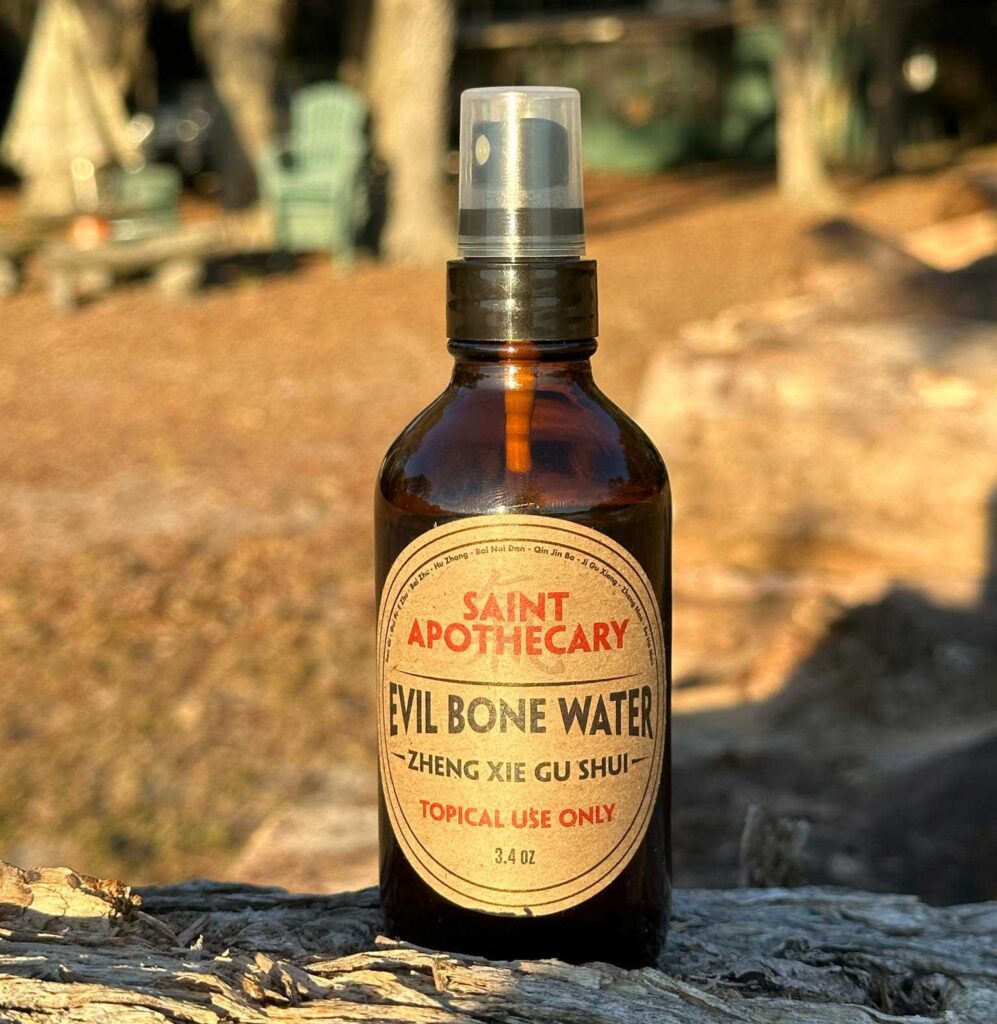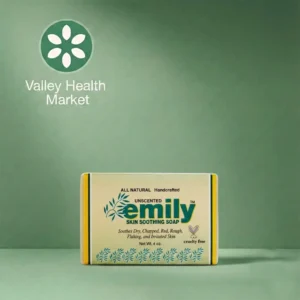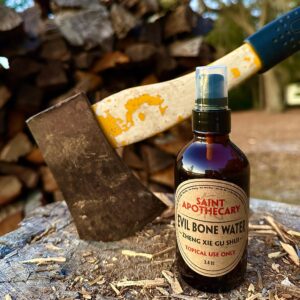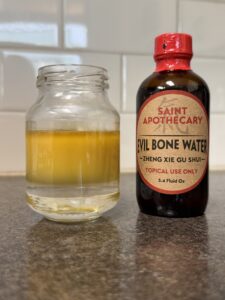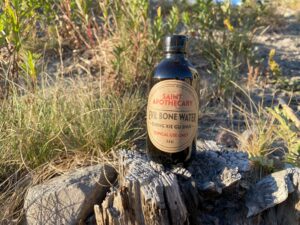Introduction to Natural Wound Care for Horses
Horses are active animals, prone to injuries like cuts, scrapes, and bruises. As a horse owner, knowing how to manage these wounds can make all the difference in your horse’s recovery. Natural wound care for horses is not just about applying a bandage; it involves understanding the best natural remedies to promote healing and prevent infection.
Evil Bone Water and Herbal Ice are two traditional Chinese medicinal products that have been adapted for equine use. These remedies offer potent, natural alternatives to chemical-based treatments, helping to soothe inflammation, reduce pain, and accelerate the healing process.
Evil Bone Water is renowned for its quick and effective healing properties. This topical analgesic is especially beneficial for equine wounds because it helps to stimulate circulation, reduce pain, and minimize swelling.
Herbal Ice is an exceptional natural wound care solution for horses. This formula is known for its antibacterial properties, making it ideal for reducing inflammation and soothing irritated skin.
Steps for Natural Wound Care for Horses
When using natural wound care for horses, it’s important to follow some basic principles to ensure optimal healing.
Stay Calm
Horses are sensitive to stress, so staying calm will help them relax and prevent further injury. If your horse is able to walk, guide them to a dry, clean stall or a quiet area. If they are too sore to move, keep them where they are and use a feed bucket to distract and comfort them. Call your veterinarian for any severe wounds, wounds near joints or tendons, or if you're unsure about the severity.
Stop Bleeding
Apply direct pressure with a clean, sterile bandage, such as gauze swabs, to stop the bleeding. Avoid using cotton wool as it can stick to the wound. If the bandage becomes soaked, place fresh material on top without removing the soaked bandage to prevent disturbing newly formed blood clots.
Clean Wound
Gently clean the wound using a saline solution or clean running water. Cold hosing can help reduce swelling and remove surface contaminants, but avoid using too much pressure as it can push debris deeper into the wound tissue.
Apply Dressing
Apply direct pressure with a clean, sterile bandage, such as gauze swabs, to stop the bleeding. Avoid using cotton wool as it can stick to the wound. If the bandage becomes soaked, place fresh material on top without removing the soaked bandage to prevent disturbing newly formed blood clots.
Bandaging Tips
Bandaging is key to ensuring good wound healing. As a horse owner, it’s important to understand what makes a good bandage and how to apply one. Every bandage consists of three layers:
This padding layer provides even pressure over the wound. Cotton wool or gamgee are good choices for this layer.
This top layer holds everything in place and provides compression. Products like Vetrap are used for this layer.
When to seek veterinary care
- Profuse bleeding that is not controlled by direct pressure.
- Broken skin where the entire thickness has been penetrated.
- Deep wounds** or wounds located near joints or tendons
- Contamination of the wound that can't be cleaned
- Gaping wound edges or a visible skin flap.
- Visible deep structures such as muscle, bone, or tendon.
- Severe lameness, even if the wound appears minor.
- Wounds requiring sutures to close the skin properly.
- Signs of infection , including increased redness, swelling, heat, or discharge.

Monitor for Signs of Infection
Check the wound daily for signs of infection, such as increased redness, swelling, or discharge. If these symptoms occur, consult your veterinarian immediately. Herbal Ice and Evil Bone Water are great for Keeping the wound environment moist to promote healing and prevent infection.
Herbal Ice
Herbal Ice, also known as San Huang San in traditional Chinese medicine, is an exceptional natural wound care solution for horses. This formula is known for its antibacterial properties, making it ideal for reducing inflammation and soothing irritated skin.
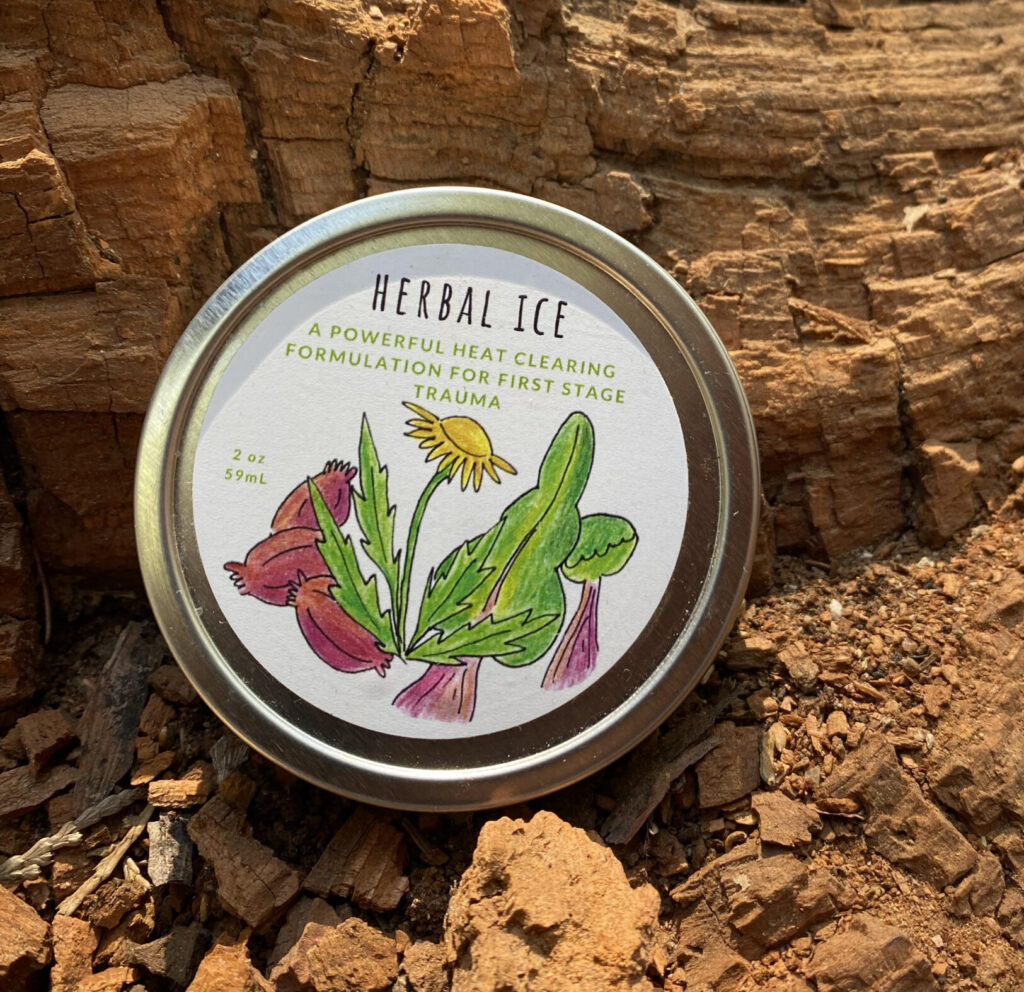
Reduces Swelling
The cooling effect of Herbal Ice helps reduce swelling in acute injuries, such as sprains or strains
Prevents Infection
For injuries on the limbs, consider applying Herbal Ice before bandaging. Ensure the bandage is breathable and not too tight, as this allows for proper airflow and continued healing.
Apply Directly to the Skin
After cleaning the wound gently apply a small amount of Herbal Ice directly onto the affected area. Rub it in gently to ensure even coverage. You can reapply as needed, but remember that Herbal Ice is most effective for managing initial inflammation and is not intended for long-term use.
Combine with Bandaging
For injuries on the limbs, consider applying Herbal Ice before bandaging. Ensure the bandage is breathable and not too tight, as this allows for proper airflow and continued healing.
Monitor and Adjust
Once the swelling and inflammation have significantly subsided, discontinue the use of Herbal Ice to prevent overuse. Continue to monitor the wound and consult your veterinarian for further wound management if needed.
Evil Bone Water in Equine Wound Care
Evil Bone Water, traditionally known as Zheng Gu Shui, has been used for over 500 years to treat injuries related to muscles, bones, and joints. It is renowned for its quick and effective healing properties. This topical analgesic is especially beneficial for equine wounds because it helps to, stimulate circulation, reduce pain and minimize swelling.
How To Use Evil Bone Water
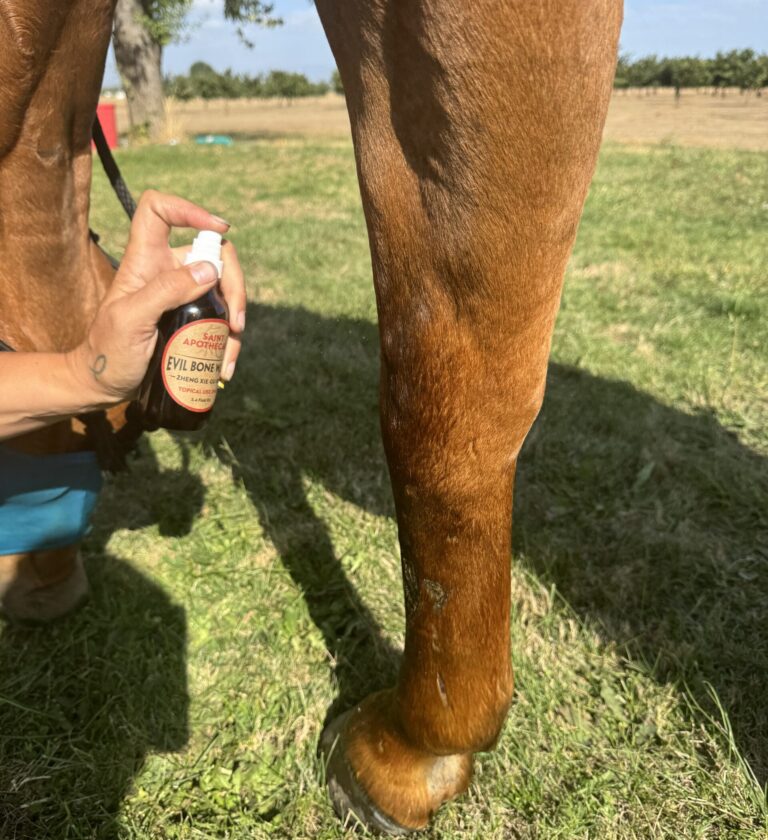
After cleaning the wound, spray or dab a small amount of Evil Bone Water around the affected area. For optimal results, apply it after using Herbal Ice, as this combination can help reduce pain and inflammation effectively.
Your Horse Deserves The Best Care
Stock up on these natural remedies and be prepared for any minor injuries your horse might encounter.
Evil Bone Water is renowned for its quick and effective healing properties. This topical analgesic is especially beneficial for equine wounds because it helps to stimulate circulation, reduce pain, and minimize swelling.
Herbal Ice is an exceptional natural wound care solution for horses. This formula is known for its antibacterial properties, making it ideal for reducing inflammation and soothing irritated skin.
About the Author
Willard Sheppy is a writer and healthcare practitioner who seamlessly melds scientific knowledge with practical applications in engaging and authoritative articles. He holds a Bachelor of Science in Environmental Science from Oregon State University and a Master’s in Acupuncture and Oriental Medicine from the distinguished Oregon College of Oriental Medicine.
In his work, Willard skillfully combines his extensive educational background in scientific research with his practical experience as a healthcare practitioner. Willard balances his life with martial arts and cherished family adventures. As a father of three, he often leads his family on camping and hiking trips along the breathtaking Oregon coast.
Connect with Willard on LinkedIn at linkedin.com/in/valleyhealthclinic or learn more about his services at valleyhealthclinic.com. Embark on this journey towards holistic health with Willard!

